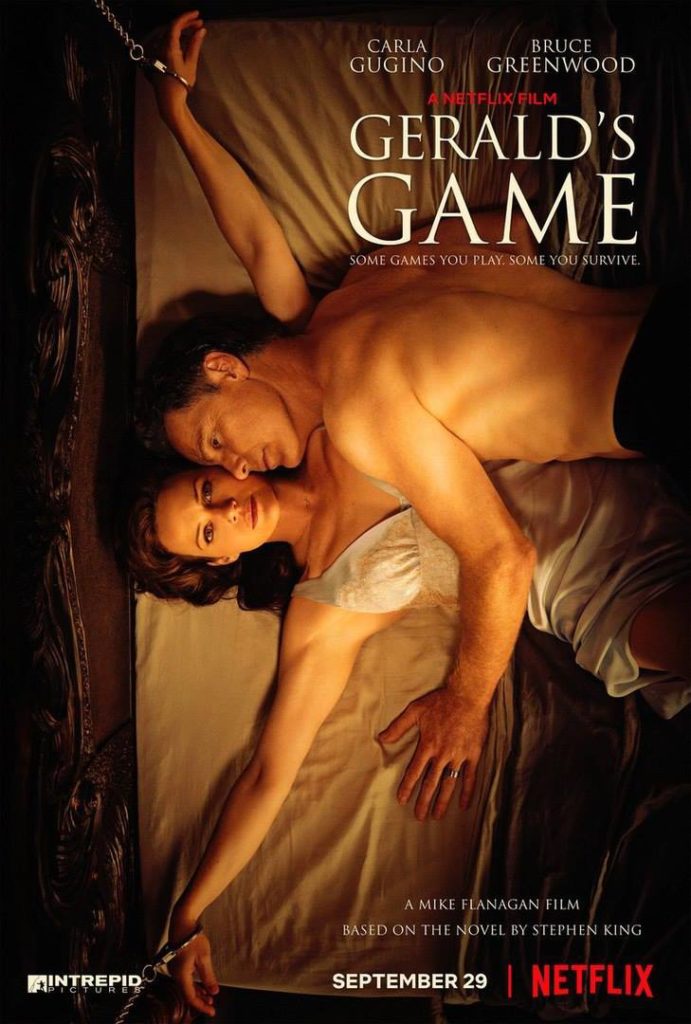GERALD’S GAME
I have to say, the hype is right: Gerald’s Game is as about as good as it gets, Stephen King adaptation or not.
Recalling motifs and tones from Misery, Dolores Claiborne, and Secret Window, Gerald’s Game centers on a wife confronting her own psychological and emotional demons while trying to escape the bondage gear her husband has trapped her in, a very hungry dog and the personification of Death that may or may not be a real thing.
Gerald’s Game is about shining a light onto one’s own weaknesses, strengths and one’s own will to live. It’s definitely not for the squeamish as we accompany Carla Gugino’s character through both agonizing physical torture and even worse (in my opinion), the darkness of her childhood.
But Gerald’s Game does not exist for knee-jerk exploitation; its effect is aimed directly at our ability to understand our selves and our own capacity for forgiveness. Yes, I love horror films that end ambiguously (like the close up of the mirror in Prince of Darkness or the passing of the whiskey bottle in The Thing). I even love horror films where the ending is dark (Ben surviving the Night of the Living Dead only to be shot dead in the morning by a vigilante posse). But most of all, I love horror movies where the main character has thoroughly earned their victory and can walk away free, into the daylight, ready to be the guardian angels of their own lives. Those are the kind of endings that make me sleep well at night.
Halloween or not, I highly recommend checking out Gerald’s Game on Netflix.

